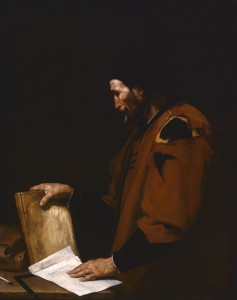 To John W. Yolton
To John W. Yolton
6, Via di Santo Stefano Rotondo
Rome. June 30, 1951
The organising and directive force in living bodies is biological, not mental: I call it the psyche, in the sense given to this word in Aristotle’s De Anima. When such a psyche reaches its full development, it generates a hypostatic light, sensation, emotion, or images, and the whole drift of passions and thoughts. To say that I separate mind from matter is therefore exquisitely contrary to the fact. Nor is it in any definite sense “happiness” that crowns this development: there is a sort of happiness in the fulfilment of any natural function; but usually there is much else at work as well in the psyche, and much sacrifice and renunciation is involved in any real moral peace. It may be society in general that is given up for a particular love, or vice versa; or it may be a general submission of everything definite in the routine of a busy life. I do not deny that for some psyches that last may be the least of evils; but I see no reason for thinking it the compulsory duty of everybody. And the desire to do good and improve the world is the active side of the natural tendency to establish an equilibrium between oneself and the world: it may serve you; you may serve it; perhaps both things can be realised at once, and then tutti contenti.
From The Letters of George Santayana: Book Eight, 1948-1952. Cambridge, MA: The MIT Press, 2008.
Location of manuscript: Unknown
